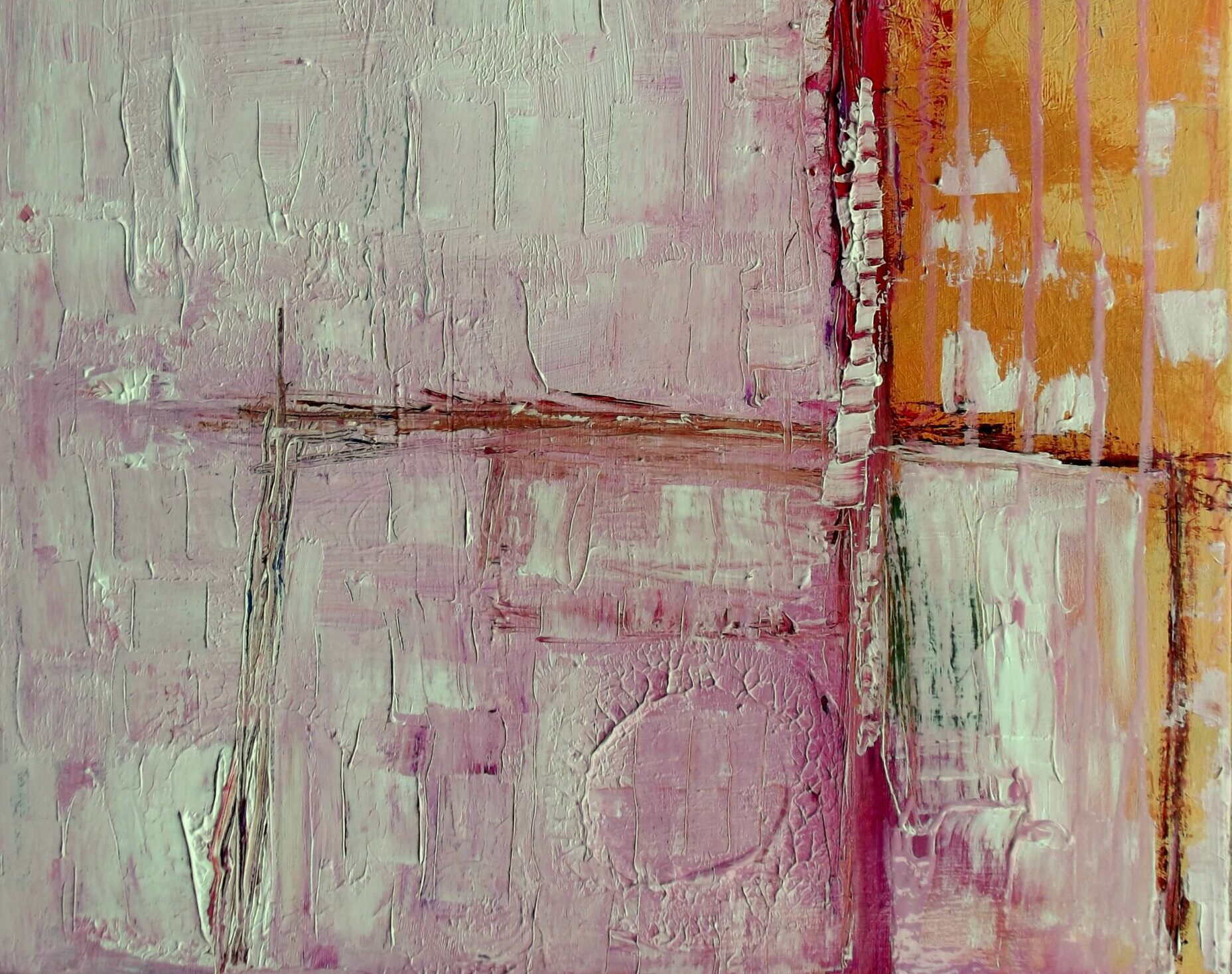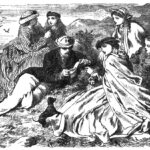Charleston, SC. Paul J. Pastor’s first collection of poetry, Bower Lodge, is energetic. The collection prizes the body and its presence in a place. Poems embrace mortality, frailty, weakness—everything that our present age rejects. To many, the idea that a local community, much less a locality itself, could be their primary good seems astounding. Pastor’s commitment to and love of place is not novel; but these days, it is revolutionary.
Where the collection stumbles, for this reader, is in embracing modern form (or, more accurately, lack of form), despite the poet’s obvious talent and ability. Embedding messages of permanence and place in the momentary, free-verse lines of modern poetry seems contradictory; the medium is the message, after all. While there are memorable lines of poetry in this collection, the poems do not lend themselves to memorization—to savoring their words in the mouth and mind. Nevertheless, Bower Lodge takes great pains to focus its readers on the true, the good, and the beautiful. This virtue, more than any virtue of skill or style, makes it a collection worth reading.
Pastor has arranged the collection in three sections, “One,” “Two,” and “Three.” Each section gives a brief introduction about the contents. “One” consists of “words / written as the beloved Wanderer sought the unwelcome sleep of Bower Lodge,” accompanied by “a lovely and implacable Embalmer[.]” In “Two,” while the “Embalmer hums a tune[,]” the “beloved Wanderer / … lay mum among canopic jars,” and sleeps the “holy sleep / of Bower Lodge.” Section “Three” comes “after the beloved Wanderer waked again beside his Embalmer[.]”
The Bower Lodge title comes from a series of three interrelated poems that are spread through the collection: “The Green Chapel (Bower Lodge, Seen from Dry Ground),” “Bower Lodge,” and “Bower Nest (Resurrection).” The poems, and indeed the whole structure of the collection, form a catabasis — a trope from Classical poetry, such as the Odyssey, where the hero descends into the underworld and, if fortunate, reemerges to the land of the living with knowledge that helps him on his quest.
“The Green Chapel” recalls the story of Gawain and the Green Knight. The unnamed “I” of the first poem arrives at the Green Chapel, one year and a day after lifting and dropping the “heavy axe” on “skin and sinew[.]” The poem ends with the persona still outside the Green Chapel, pausing on the cusp of his descent into the underworld. In “Bower Lodge,” the persona of the poem speaks directly: “You’ll know the day has come / because you fear it.” As “comfortable omens fail[,]” we come to “the time / to do your first great dying[.]” Here, the persona descends into death “in the bower of the river.”
These two poems are both found in “One.” “Bower Lodge” is the second to last poem in the section. In a nice symmetry, “Bower Nest (Resurrection),” is the second to last poem in “Three,” and, thus, in the entire collection. Here, the persona who died in the Bower Lodge describes his resurrection, although he “hesitate[s] to tell” it. It is deeply personal, “too near / my spirit” and he “cannot do it honor.” Nevertheless, he tells how
… the great Star, with surgeon’s mask and gauze, reached to take me like an infant from my winding sheets. And as he lifted me from where my grubflesh length had crawled to perish and wiped my face and gave me a new name (I may not utter it), I looked below me at the bower in the river. I saw that it had always been the belly of a mother, a tomb that was a womb, blooming like a rose of woven sticks, diligent, feathered as a nest.
The poem then launches into a series of images drawn from earlier poems in the collection. This self-referential list threads constellations of meaning through the earlier poems; this is a collection that rewards re-reading. For example, the “ladder leading down / that I now see leads up as well” echoes the “spear ladder” that Christ descended in “Good Saturday” (discussed below, but preceding this poem in the collection). Now, the ladder leads up, as well as down, and it reminds us that our catabasis is only possible because Christ descended and ascended before us.
I think “grubflesh” fails as a kenning—I can offer no strong argument, simply an aesthetic disagreement. I find it a discordant note in a musically attuned section of the poem. However, I grant that it has a rough, Anglo-Saxon kind of charm, and I appreciate that Pastor attempts a kenning here and in other poems in the collection. More objectively, the cliché juxtaposition of “womb” and “tomb” diminishes an otherwise powerful moment in the poem; the continued assonance of “blooming” does something to redeem the line, but not entirely.
Through this catabasis, the collection celebrates the body and the fleshiness of being. In “Leatherfoot,” the poet lays out “[t]wo options[.]” Nominally, the options are to wear shoes or not to wear shoes. But the choice is deeper: it is a choice between embracing or rejecting our embodied nature and means of knowing. If you wear shoes, you are always
buying and buying them, wearing and wearing them out, hurting less, knowing less, being shod nor can foot feel
Pastor’s second option is “to be your own shoon, so / to say”—that is, to go barefoot, walking unshod on gravel, with feet “nervy, curling.” This is to embrace the fragility of the body, your feet “[c]old some, split / some, whorled and knotted” but also unique among the animals, “leaving / prints no other leaves[.]” Though it hurts more, we also know more—we know, for example, what it for foot to feel, “unsafe, unnumb.”
At first blush, the italicized line feels extraneous, as if the poet does not trust the reader to recognize language from one of Hopkins’s most famous poems. Indeed, the structure of the poem follows Hopkins’s structure as well—first the shod foot that cuts us off from the knowledge of God’s grandeur, then that same grandeur revealed in nature. By tying his poem so closely to Hopkins’s, Pastor’s poem risks becoming a pastiche, not of style but of substance. However, he avoids this by going beyond Hopkins’s work to observe that to know God’s grandeur in nature, we must be in nature. We must enter the physical world and know it through our physical bodies.
Pastor makes good use of the printed line, paying careful attention to the effect that his lines have on the reader. Speaking of shoes, in the first line we are “buying and buying them”—this is straightforward English where a subject is verbing an object. In the next line, we read that we are “wearing and wearing them” when the line ends, and we expect that is the end—that is, we expect that subject is verbing object again. However, by using the phrasal verb “to wear out,” and by further pushing the preposition “out” to the next line, Pastor couples the two lines in content at the same time as he detaches them in form. The effect is surprise, a subtle, pleasing nudge to render the meaning more carefully.
In the next two lines, Pastor redoubles the effect. After a pattern of “hurting less, / knowing less,” readers expect that “less” should follow the third gerund, “being.” Thus, “shod” follows as a surprise — and a subtle suggestion that to be shod is to be less than fully embodied. Removing the enjambments removes this effect:
buying and buying them, wearing and wearing them out, hurting less, knowing less, being shod …
There is a minor aesthetic appeal to these lines. The repeated gerunds beginning each line produce a kind of visual anaphora. But the formal departures from previous lines are immediately apparent, because they are immediately juxtaposed. As your eyes scan the line, you can see that the line is different to the one above it, even if you cannot make out the exact differences. Readers can brace for, and therefore diminish, the impact. The lines as rearranged gain little and lose much.
For similar reasons, the poem’s strength on the page diminishes when read aloud. When read aloud, the enjambments disappear—in the absence of a metrical, regular line length, the ear registers only commas and periods. Read aloud, the poem takes on a similar character to my inferior rearrangement, losing a valuable effect. One could argue that the poem relies for its effect on its own visual embodiment, its own arrangement of ink on paper. However, when a poem insists on the goodness of our human bodies, it is a shame that the poem becomes weaker when spoken by the mouth and heard by the ear.
Pastor’s love for the body springs from Christ’s work in the body. In “Holy Saturday,” Christ descends to harrow hell, and Pastor imagines this in bodily terms. The poet hears Christ’s “feet on the spear ladder / climb down” into the earth. Christ “toss[es] his head and laugh[s],” and rides, “tying up his hair to keep it catching / on his scythe.” “Tomorrow[,]” in His resurrection, Christ will lay the rescued patriarchs “across those slender shoulders / like a brother hoists his father’s / younger children.”
This is poetry that focuses its readers on the true, good, and beautiful. Here, we are reminded that Christ took on flesh like ours, that he was born as we are, that he died as we will. In doing all of this, Christ has redeemed our flesh:
Now falls the hour to feel the bone beneath our skin. Death shall peel our flesh from us, toss it to the dogs of time. But listen as you wither to his feet upon the spears. … … None shall sleep through this shout from our buried Conqueror.
Because of Christ’s flesh, weakness, and death, we can revel in our flesh, our weakness, and even in our death. Dying, we can take comfort to hear Christ’s footsteps descending with us; as we go down into the earth, we go only where God, in His body, has already gone for us. Neither do we go to our end, but only to a sleep that God Himself will interrupt using a shout produced with His lungs, vocal cords, tongue, teeth, lips. As Christ carried the patriarchs out of the earth on “slender shoulders,” he will raise us with his body as well. Thus, our bodies, our weaknesses, are good things, because they are things that Christ has redeemed.
From the foregoing selection, it might be easy to conclude that Pastor has too rosy a view of our times; that if only we can return to the land, if only we can rediscover place and body, things will be alright. This is not so, as the epistolatory “My Sons” reveals — a poem that evokes Wendell Berry in both style and substance. Writing to his (perhaps spiritual) sons, Pastor marks the problems of the day:
… The crow pulls foil from the earth. The rain is mixed with ash. The ground is hard to plow, yet we must turn the dirt. The work is more than ever needed, yet less help shall we get than any of our fathers.
Nevertheless, in the face of this grim reality, Pastor issues “a solemn charge: be courageous.” We cannot shirk our responsibility and say “this is not / our mess.” To do so would betray “all our fathers” who “stand to agree.” It is our duty to live well. Pastor commends to us strength, simplicity, joyfulness, honesty; he commands us to be “[h]ard and merciless on what you / must strike, full of compassion for all / things lovely.”
It is because of the augurs of a crow, because “the year [is] bleak / and all the omens foul,” because of the “bleached liar who whispers / from the shoulder,” that we must live well. After all, “[g]lory comes to those / who are present at the crisis.” By living in our bodies, in our places, we “bless this hour of long sadness.” At our death, we will join our ancestors “in the quiet light” and “with / honor and esteem.” But this is not some disembodied heaven, removed from earth: instead, our forebears “will ask / to shake your hand[;]” Pastor himself will rejoice “to hold you again, to kiss you / on each cheek.” The purpose of our work is not to escape the earth, but to make it better, “to “str[ike] a blow / at wickedness and folly.” The goodness of our work is for this world, in this world.
In “Can Poetry Matter?” Dana Gioia lamented poetry’s ill health. But Gioia also prescribed several cures. One cure, Gioia says, is that when poet-critics write prose about poetry, they must “regain the reader’s trust by candidly admitting what they don’t like as well as promoting what they like.” I have tried to follow that command in reviewing Bower Lodge. Pastor’s poetry has room for refinement, both in form and substance. In the end, however, there is more to admire than to admonish about Pastor’s first collection. It leaves readers with a hope that this will not be his last.







